Golf at the Rio Olympics: Apathy could cost golf its golden opportunity
- Published
- comments
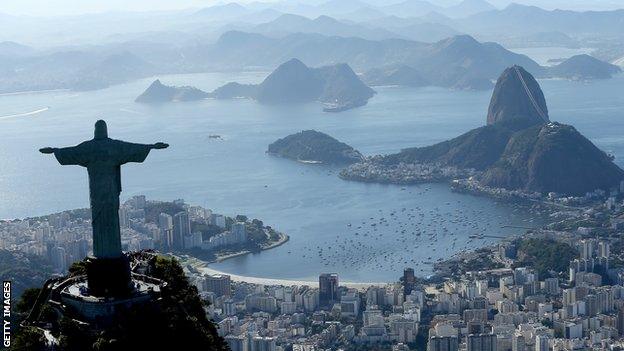
The eyes of the world will be on Rio during the Olympics, but can golf use this perfect platform to successfully grow the game?
Adam Scott is a thoughtful, polite and engaging golfer. So is Louis Oosthuizen. Like Scott, he is a major winner and an example of the athleticism that has become so prevalent in the modern game.
Pick players to provide role models for how to swing a club and the elegant Aussie and the powerful South African would be at the top of the list.
They epitomise why golf is regarded more as a sport than a recreational pursuit these days, and that is surely one of the reasons why the International Olympic Committee voted to readmit it for the next two Games.
It is, therefore, a shame that both have joined 53-year-old Vijay Singh in declaring themselves unavailable for Rio in August.
The decision to readmit golf to the Olympic family was taken back in 2009 when Tiger Woods was at the height of his powers and regarded as probably the biggest sporting star on the planet.
Golf wanted to capitalise on his status and recognised the Olympics as a perfect platform to expand the game. The IOC saw the noise generated by Woods, someone who approached the sport like a genuine athlete and generated dollar signs wherever he went.
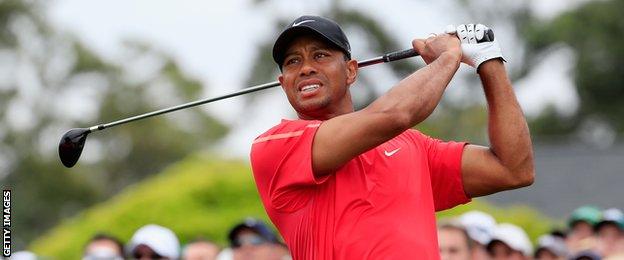
With Tiger Woods no longer the world's biggest sportsman and unlikely to be appearing at the Olympics, will the likes of Jordan Spieth and Rory McIlroy be able to create enough interets to attract new fans?
Golf was hitting a plateau and in some markets heading into decline. For it to grow and gain footholds in new territories, the authorities felt they needed to take their game out of its cosy but stagnating bubble.
It suited both sides even though it would never win approval from the large constituency who insist there should be no place for sports where a gold medal does not constitute the pinnacle of sporting achievement. Gold medal or green jacket? The golfer would make room in his wardrobe rather than on his mantelpiece every time.
But the same sentiments apply in other Olympic sports. The pinnacle argument is obsolete.
Consider the stature of the Grand Slam events in tennis, while Chris Froome says he would prefer a Tour de France victory to a cycling gold and the Olympic football event is hardly the ultimate prize in its sport.
Yet tennis, cycling and football still bring plenty to the Olympic party. They attract big crowds, television audiences and money to justify their places at sport's top table.
They also provide intense competition. Andy Murray's gold medal at the London Games was a career highlight with genuine resonance. And anyone who watched Roger Federer win the final set 19-17 of his semi-final against Juan Martin del Potro would not doubt whether it meant much to the players.
Archive: Murray beats Federer to win London 2012 gold
So what's the problem with golf joining? The sport brings a reputation for power, precision, skill, integrity and fair play - qualities that all fit with the so-called Olympic ideals. Golf has yet to suffer a damaging drugs or betting scandal and it is actively seeking to make itself less elitist and more accessible.
Joining the Olympic platform has already helped in that regard. Augusta and the R&A could hardly remain single-sex clubs and leading governing bodies in such an environment.
Furthermore, as a game much more based on physical power in the modern era, an anti-doping programme was desirable - and the quest for Olympic status made it a necessity.
The evidence from the inclusion of tennis in the Games suggests golf is now well placed to reap big benefits over the coming decades. Tennis was readmitted in Seoul in 1988. Then there were 147 nations affiliated to the International Tennis Federation; now there are 211.
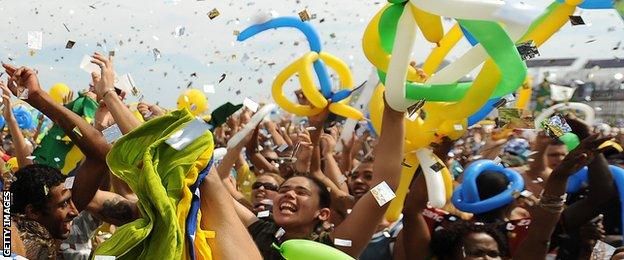
Millions of people will watch golf for the first time at the Olympics, but will the 'Olympic effect' increase the sport's popularity when it's over?
The ITF provides figures that show the number of countries playing in the Davis Cup has risen from 74 to 135 in this period and in the women's Fed Cup from 36 to 102. In 1992 the first-round men's singles draw at Wimbledon had 25 countries represented in the men's competition and 28 for the women; last year's draws had 44 and 37 countries respectively.
Even allowing for the break-up of the former Soviet Union and Yugoslavia, these figures illustrate a far greater geographical spread.
"Our belief is that the additional support given to any Olympic sport by National Olympic Committees helps to grow the sport in that country and that this 'Olympic effect' has broadened tennis significantly," ITF spokesman Nick Imison told BBC Sport.
"We would also think that the work of our development department has helped with this, but the Olympics surely has been a major factor."
The IOC wants the best players from every Olympic sport. The notion that the Games are the preserve of amateur sportsmen and women has long since disappeared.
So it is regrettable that Scott, the Masters champion of 2013, and Oosthuizen, the Open winner in 2010,, external have chosen not to be in Rio. Both cite "scheduling issues", although Scott's antipathy towards Olympic golf is well known.
The 35-year-old is of a generation that grew up with no inkling that their game would one day become an Olympic sport. And if you are a lavishly remunerated elite player going from one superbly backed tournament to another it is easy to think that all is well with the golfing world.
Yet Scott knows better than that. For the most part he gets it; he is patriotic and knows his responsibilities. He is someone prepared to tailor his schedule to support the biggest events in his home country and who yelled "C'mon Aussie" during his crowning glory at Augusta.
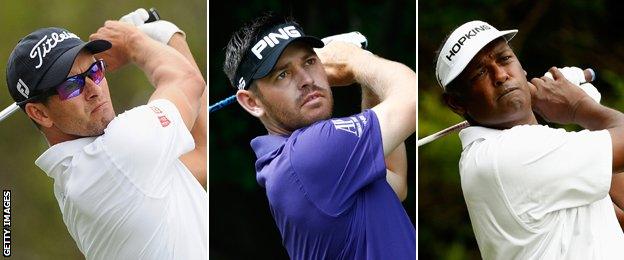
Adam Scott, Louis Oosthuizen and Vijay Singh have all decided not to play at the Olympics in Rio
He will also have noticed that after 37 years the Australian Masters does not feature on the 2016 calendar. This is at a time when his compatriot Jason Day is world number one and reigning US PGA champion.
If they can't make such a tournament work in these circumstances then it is fair to conclude golf needs all the help it can get.
That's why it should embrace the Olympics, especially when you consider the much-needed shop window it offers the women's game.
Yes, the 72-hole strokeplay format for Rio is dull and unimaginative and the rules surrounding national kits and so on bring multiple sponsor headaches. And yes, at the moment, a major does mean more than a medal.
But these are first-world problems.
Those challenging for medals in Rio will be watched by a global audience of sports fans, not just golf supporters already converted to the game. As the figures in tennis suggest there is huge potential for significant growth, but it is jeopardised by player apathy.
Back in Seoul the inclusion of tennis did not meet universal approval. John McEnroe and Martina Navratilova both gave it a miss while Boris Becker and Mats Wilander skipped the tournament through injury.
Yet in 2012 tennis was one of the big success stories of the London Games. Murray's victory and his mixed doubles tilt with Laura Robson were real highlights.
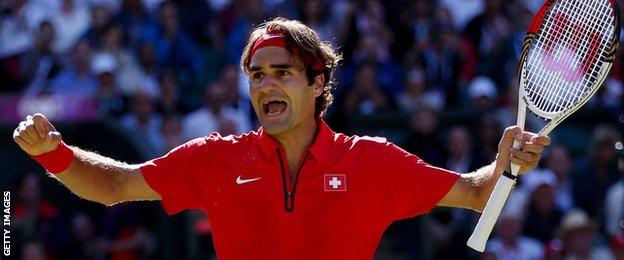
The world's best tennis players, including Roger Federer have embraced the sport at the Olympics
This is a sport, like golf, that is based annually around four major events. Every fourth year, it embraces a fifth key tournament and golf should do the same.
It would be highly damaging if other leading players follow the stay away example of Scott and Oosthuizen.
Both should be among the sport's greatest ambassadors because they have all the attributes, but for many who have the best interests of golf at heart, it does not feel that way at the moment.
Never want to miss the latest golf news? You can now add this sport and all the other sports and teams you follow to your personalised My Sport home.
- Published21 April 2016
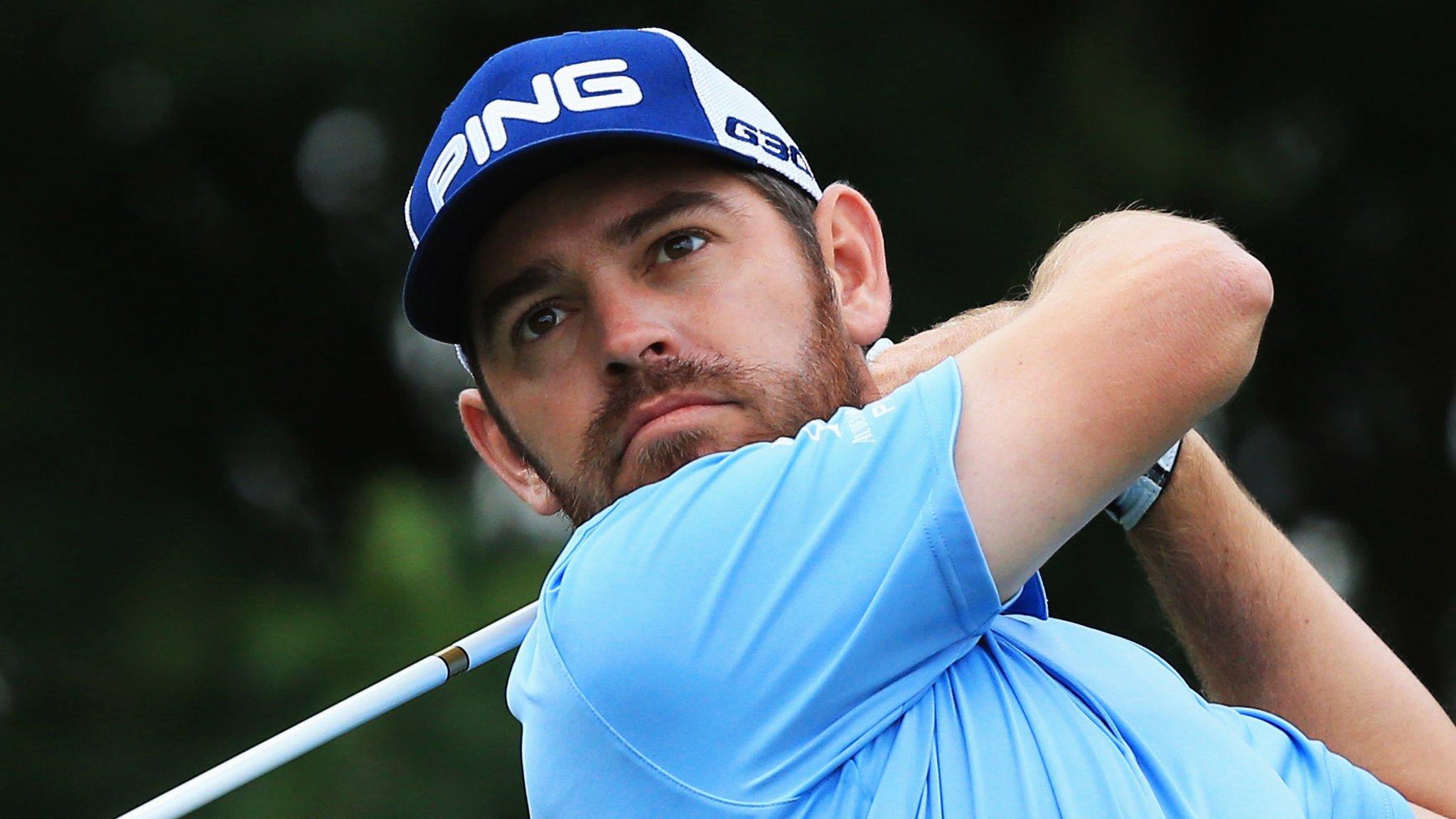
- Published20 April 2016
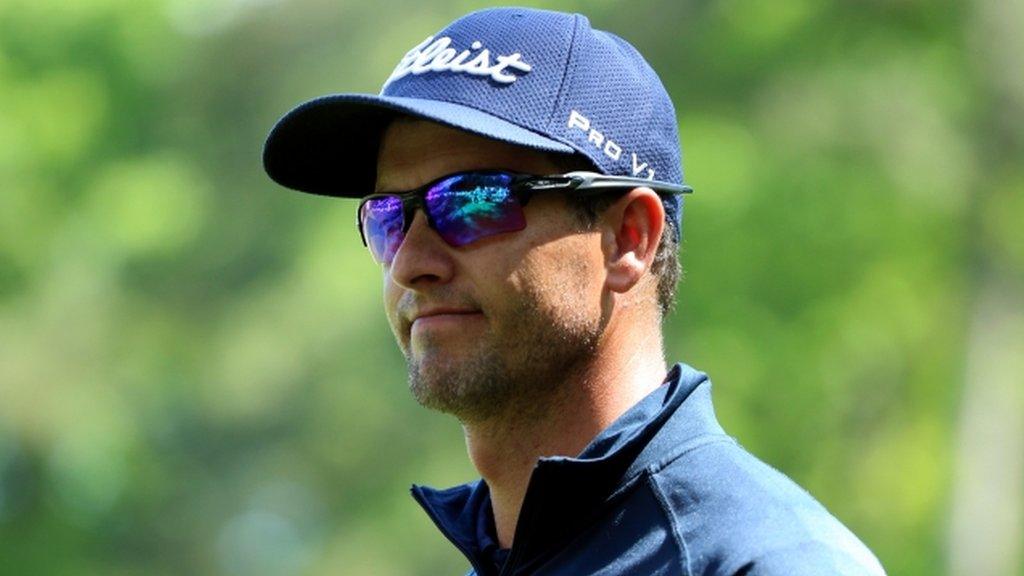
- Published12 April 2016
- Published28 September 2018
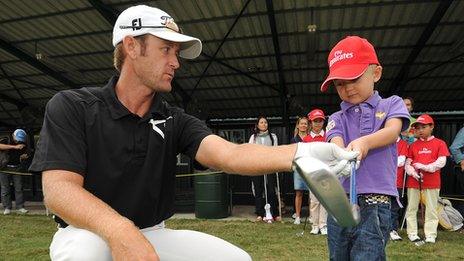
- Published19 July 2016
